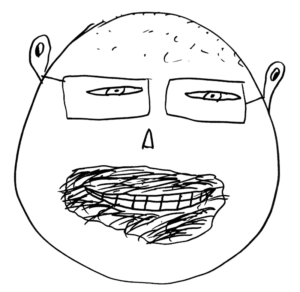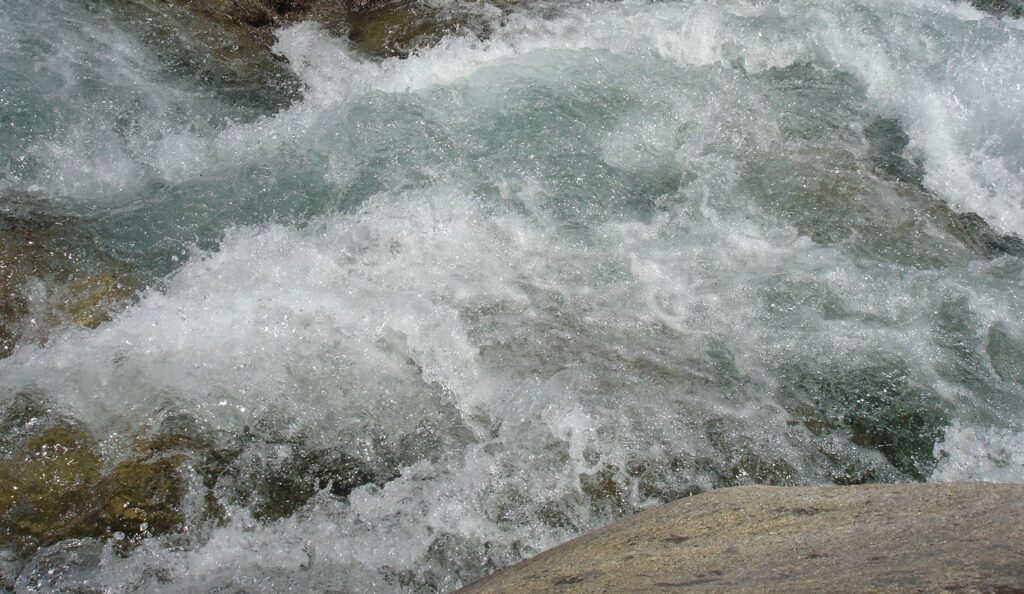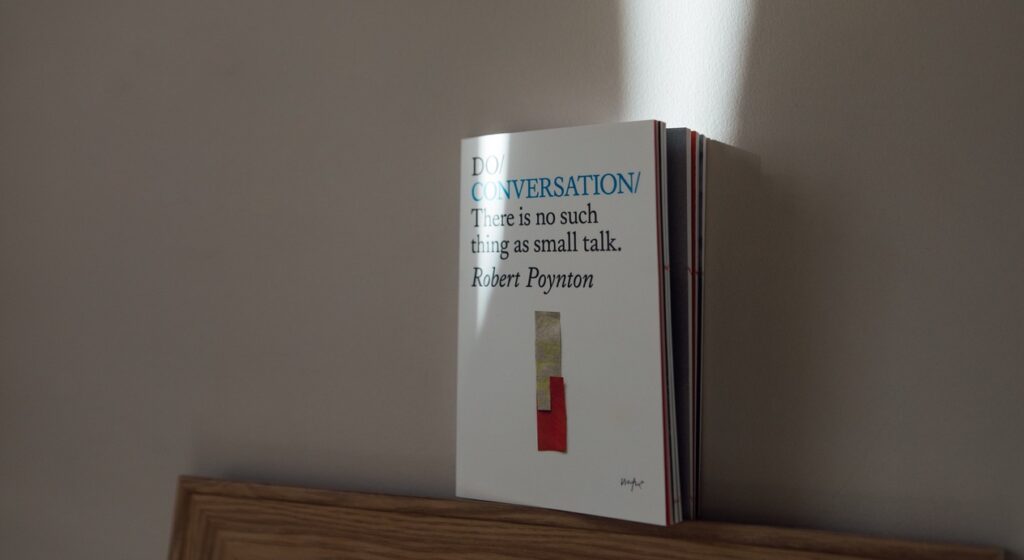I read a lot. I am not a particularly fast reader, so I don’t get through as many books as some, but by any measure I read a fair amount. And yet I forget most of it. The vast majority in fact[1].
The irony is that people often comment on how much (they think) I remember. The motley collection of works and authors that feature in my meandering conversation fools them. If only they knew. They see the tiny fraction I recall, but I am privy to the vast amount I forget, or that never even registers in my mind in the first place. Unlike them, I am well aware of how I constantly recycle a limited body of material, re-using it for different purposes in different conversations.
After twenty five years or so of professional development, of studying and teaching, it is true that I am familiar with a range of ideas, tools, models, quotes and stories. And I can wield them well. From a limited store, I am able to pull out pertinent examples and illustrations but more in the manner of someone wandering on a beach coming across bits of driftwood, than in any organised or comprehensive way. And the truth is I have forgotten vastly more than I can remember.
There are a few books whose main ideas I do a fairly good job of explaining – though if so, it’s likely I have read them more than once. There are more whose central themes I butcher and bastardise. More common still are those that, however enthusiastic I was about them at the time, have left me only a faint recollection of one or two vague ideas I can barely explain. And these, in turn, are vastly outnumbered by the books that I recall absolutely nothing of whatsoever, except perhaps the design of the jacket or where I was when I read them. Occasionally there are even books that I don’t remember having read at all, so that I happily buy them again, only later to find the first copy (full of notes) sitting on the shelf, taunting me for my forgetfulness.
There is a wealth of advice available about how to solve this problem. On-line I am besieged by ideas about ‘personal productivity’. Every day there are new tips and hints about what to read and how to read. There are summaries and short versions, advice about note taking and reviewing, about filing and synthesising and so on. The stream of blogs and newsletters that promise to make my reading (and my life) more efficient, more productive and more useful has become a torrent. I could easily fill my days with reading about reading.
Every now and then I flirt with one of these approaches. Last year, I spent a couple of days making notes on index cards of the plentiful and fascinating ideas in Tim Harford’s “Messy”. I hoped that as a result they might stick. They didn’t. Even though the ideas in the book resonated strongly with me, the only thing I can recall from it now is the story behind Keith Jarrett’s ‘Cologne Concert’ (and since for thirty years or so that has been one of my favourite pieces of music it’s hardly surprising I remembered that. Though now I come to think of it, that might have been in another book of his – “Adapt”. You see what I mean?).
So instead I have decided to give up the struggle to remember and organise what I read (whether in my mind or in some ingenious filing system). I am going to ignore all the advice that people are so keen to give me and devote my attention and energy to a different struggle, which I find far more interesting.
This is the struggle I have with the whole idea that memory and recall are what matter most. That doesn’t seem to be the way my own particular mind works – in so much as it can be said to ‘work’ at all. For me reading, like life itself, is far more mysterious, far more oblique and far more delightful than that. I don’t read solely to remember any more than I eat simply to refuel.
Books wash over me, like waves of the sea washing over a rocky beach. The water retreats, but in all sorts of nooks and crannies little puddles remain – disconnected now from the wave that they were part of it, forming a miniature world of their own. As another wave crashes in they might coalesce with a nearby pool, or fragment into several smaller ones, or seep through a crack and disappear into one lower down. The ceaseless force and pressure of wave after wave, shape and form the rocks themselves, creating new nooks in which new pools can form, or settle, or stagnate. And, in time, whole slabs of rock are moved by the turning tides and shifting sands, by seasons and storms eroding and creating as they pass.
To focus only on what we remember assumes that only that which is visible, discrete, and at hand is all there is, or all that matters. Yet the mind is surely more than a collection of flotsam and jetsam stranded on the shoreline of consciousness? Any episode or incident I can consciously recall is a memory of a memory, a story encoded and transcripted into a piece of simplified schtick, distanced, if not completely divorced, from the experience that gave birth to it.
Recollection is a fickle creature. My friend the Spanish poet and novelist Tomas Salvador believed that true memory (“a vast, dimly-lit warehouse”) is always involuntary – it comes to us of its own accord and does not submit to our clumsy, deliberate efforts. If so, then most of what we say we remember is not true memory at all. True memory is that sparked off by a smell, a thought, a desire, the sound of a footfall, the shape of a cheek. It does not obey conscious thought at all.
Thus a book I do not remember may have had an effect on me I cannot discern. Who knows what seeds may be planted by a phrase or idea I have read but cannot recall, what fires its sparks may, one day, invisibly ignite? Why, I wonder, do we believe that all understanding must, necessarily, leave a trace of how it came to be?
It seems far more fitting and fruitful to think of my mind as a compost heap not a computer. The experience of being me rarely, if ever, involves singular, unitary pieces of unambiguous recollection or experience, neatly and precisely labelled and located. For me memory is a place where eggshells, rotting cabbage, stale bread and orange peel combine in the presence of moisture and heat to create something else. Given enough time a rich, dark, loamy soil emerges which reveals no sign of its stinking, leftover origins.
I am more than I can recall. I am irregular, ragged, incomplete, inconsistent. I am the ebb and flow of feeling, I am relationships. I am all the books I have ever read, all the experiences I have ever had and all the people I have ever known and loved. They are in me and are part of me, even if I can’t remember them at all.
[1] I am talking here mostly of non-fiction – of science and philosophy and business books. What little fiction I do read I forget all of, without exception.




